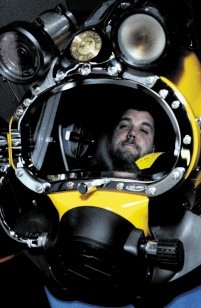
If new technology is not developed fast enough the life of the North Sea oil and gas industry could be shortened, a leading boss warned yesterday.
BP’s North Sea regional president, Trevor Garlick, said technology was now as important as exploration in the North Sea basin.
He added that technology needed to be developed to help extend the life of platforms, fields and pipelines and increase the amount of recoverable oil. Speaking at ITF’s annual technology showcase in the Aberdeen Exhibition and Conference Centre, he said the key was linking those who needed technology with those developing it, and making sure they know what was needed.
He added: “Technology is vital. We have recovered 41billion barrels of oil (in UK waters) using a recovery factor of about 40%.”
Mr Garlick said the prize was pushing recovery up to 50-60% on every field with technology.
He added: “The risk of not doing that is that costs will rise, reserves will decline and we will shorten the life of the basin.
“So there is a real pace issue, there’s an urgency. With these fields, we are going to get to a point where they are uneconomic to run or too old.”
ITF non-executive director Melfort Campbell, joint chairman of the oil and gas industry leadership group, also said the key was linking people, including industry, universities and government, at events like the showcase.
He said that, despite the oil and gas industry being the largest industrial investor in the UK for 25 years, less than 0.5% of government spending on research and development had been in the sector.
Meanwhile, in Brazil, firms are ordered to spend 1% of their revenue on R&D.
Mr Campbell added: “If we are going to lead with technology, we need to be investing and we need to be at the forefront, we need to be linking people together.”
Key areas of technology development outlined by BP were finding ways to drill wells at a lower cost, machinery reliability and maintaining ageing platforms and enhanced oil recovery.
Other areas outlined by operators through a survey by industry/government initiative Pilot and outlined at the event were seismic and reservoir characterisation, subsea including subsea tiebacks, and health and safety.
The event attracted more than 430 delegates and 60 exhibitors from countries including the UK, US, Netherlands, Germany, Russia, Saudi Arabia, Norway, India and Australia.
